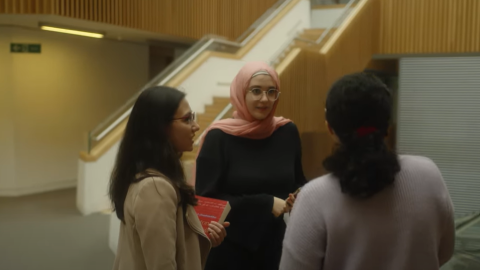History and highlights of the Kerala school of mathematics
Dr. Aditya Kolachana is an Assistant Professor in the Department of Humanities and Social Sciences at the Indian Institute of Technology Madras, Chennai. He heads the Centre for Indian Knowledge Systems at IIT Madras where his research delves into India's scientific and cultural heritage. He is a recipient of the Young Historian of Science Award instituted by the Indian National Science Academy and the Best Teacher Award at IIT Madras.
Abstract
During the 14th to the 16th centuries CE, a succession of Indian scholars, collectively referred to as the Kerala school, made remarkable contributions in the fields of mathematics and astronomy. Mādhava of Saṅgamagrāma, a gifted mathematician and astronomer, is considered the founder of this school, and is perhaps best known for discovering an infinite series for pi, among other achievements. Subsequently, Mādhava's lineage of disciples, consisting of illustrious names such as Parameśvara, Dāmodara, Nīlakaṇṭha, Jyeṣṭhadeva, Śaṅkara Vāriyar, Citrabhānu, Acyuta Piṣaraṭi etc., made numerous important contributions of their own in the fields of mathematics and astronomy. Later scholars of the Kerala school flourished up to the 19th century. This talk will provide a historical overview of the Kerala school and highlight its important contributions.


